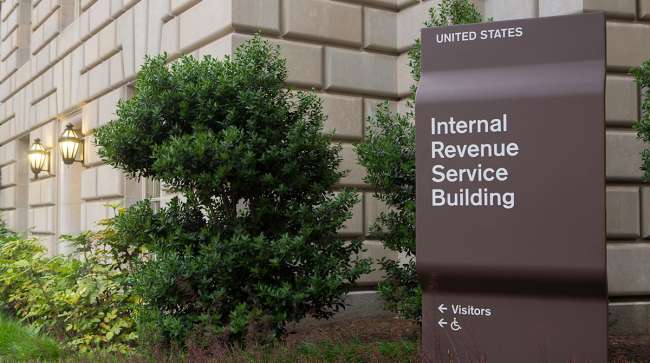Staff Reporter
IRS, Several States Grant Fuel Tax Relief After Hurricane Helene

[Stay on top of transportation news: Get TTNews in your inbox.]
The IRS and several states have issued temporary fuel tax waivers stemming from Hurricane Helene to help businesses provide disaster relief services and assist in recovery efforts. Hurricane Milton, which made landfall Oct. 9, may bring other governmental fuel tax relief measures.
Before this latest storm, Florida had extended to Nov. 22 motor fuel tax report dates for carriers transporting motor fuel, terminal operators of motor fuel and diesel fuel taxes.
RELATED: Hurricane Milton pounds Florida cities
IRS issued a retroactive notice Oct. 1 dating to Sept. 26 when Helene struck, that it will no longer impose penalties when dyed diesel fuel with a sulfur content that does not exceed 15 parts-per-million is sold for use or used on highways in Alabama, Georgia, North Carolina and South Carolina as well as in 41 counties in Florida, eight Tennessee counties and in six counties and one city in Virginia.
Dyed diesel fuel is mostly untaxed because it is mainly used for farming and heating homes. However, the IRS notice enables anyone to use or sell this type of fuel on highways in the designated areas without federal tax penalties.
The #IRS will not impose a penalty for dyed diesel fuel use on the highway in Alabama, Georgia, North Carolina, South Carolina, Florida, Tennessee and Virginia through October 15, 2024. More details at https://t.co/Kq37jsprL9 — IRSnews (@IRSnews) October 8, 2024
IRS, however, stipulated that when a vehicle operator is using dyed diesel fuel on highways, that operator/person selling this fuel must pay the 24.4 cents-per-gallon tax normally applied to regular diesel fuel for highway use.
Also, IRS will not impose penalties for failing to make semimonthly tax deposits for dyed diesel fuel sold for use or used in diesel-powered vehicles on the highway in performing relief services. Although the impact of Hurricane Milton still is being determined, the revenue agency stated earlier that additional tax relief will be provided as needed for hurricane damage relief.

Cooper
North Carolina Gov. Roy Cooper issued an Oct. 3 notice supporting the IRS dyed diesel fuel waiver and emphasized it is “in the state’s best interest” to ensure dyed fuel be delivered to and available in hurricane disaster areas to offset diesel fuel shortages.
Cooper also issued exemptions Sept. 25 from state filing requirements for quarterly fuel tax returns. Furthermore, nonparticipants in the state’s International Registration Plan and International Fuel Tax Agreement are allowed to enter North Carolina under his emergency order.
Alabama Department of Revenue Commissioner Vernon Barnett announced a 30-day suspension of IRP and IFTA requirements through Oct. 27 for any motor vehicles providing in interstate disaster assistance.
Tennessee’s Department of Revenue waived IRP and IFTA requirements through Oct. 30 for motor vehicles providing interstate disaster relief or traveling through Tennessee while performing disaster relief.
Revenue Commissioner David Gerregano issued a notice that vehicles operating in Tennessee under the waiver must have a valid registration and insurance from their base states and cannot exceed weight limits posted for bridges and similar structures.

Gerregano
“Nor shall anything in this letter be construed to relieve any vehicle, or the carrier, owner or driver of any vehicle from compliance with any restrictions other than those specified in this letter, or from any statute, rule, order or other legal requirement not specifically waived herein,” he added.
Tennessee also is providing tax relief for state businesses by enabling those located in eight eastern counties to have a May 1 extension to file their franchise and excise tax returns, as well as Schedule G franchise tax refunds.
Meanwhile, Iowa Gov. Kim Reynolds ordered through Oct. 31 that electricity repair crews traveling through Iowa to provide hurricane help in North Carolina, Florida and South Carolina are exempt from state requirements for fuel tax reporting, operating authority and registration.

Reynolds
She also declared Sept. 26 waivers for hours-of-service requirements for disaster repair crews and drivers delivering goods and services as well as relaxing regulations requiring weight restrictions and permits for moving loads on state highways for hurricane assistance.
Under this order, no fatigued or ill driver can operate a motor vehicle. A driver who informs a carrier he/she needs immediate rest must be given at least 10 consecutive hours off duty before returning to service. A driver can request a commercial motor carrier operating under Iowa proclamation to provide that driver at least 34 consecutive hours off if the driver has been on duty for more than 70 hours during any eight consecutive days.
A team of 70 #Iowa utility workers is helping to restore power to tens of thousands of customers in western North Carolina, who were hit by the remnants of #HurricaneHelene. https://t.co/xCFajQrmGx — IowaHSEM (@IowaHSEM) October 7, 2024
Under Iowa’s order, no more than 90,000 pounds of gross weight is allowed. Vehicles cannot exceed by 12.5% the maximum axle weight limit listed in the state’s nonprimary highway maximum gross weight table. Also the weight limit on axles cannot be more than 20,000 pounds. Vehicles operating under this emergency order must comply with posted weight limits on roads and bridges.
Want more news? Listen to today's daily briefing below or go here for more info:




